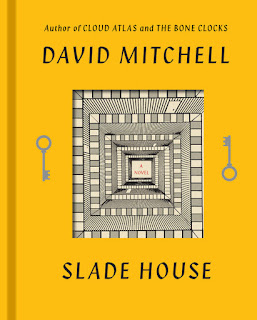 |
| Bryce Lew (left) and Grady Willard (right) |
This month, our guest blogger is Bryce Lew, class of 2015. Bryce is an advocate for
-becoming involved wherever you are
-discovering your passions and strengths
-finding a way to create community in every setting
You can catch The Aloha Radio Variety Hour, a Radio show he co-produces on Friday evenings (7:00 pm Central Time) - follow the link to listen live here: http://kdic.grinnell.edu/
Here is Bryce's post:
When Mrs. Eldridge asked me to write about "what I learned from the library," I really had to figure out the most important lessons that I gained from the library. Throughout six years, I learned a lot from the many classes and lectures I attended in the library. However, I was able to distill everything I learned into three major life lessons that I will always hold deeply to my heart as it shaped who I am as a person.
- Always, always get involved. Ever since I was in middle school, Mrs. Ursettie has encouraged me to try everything on campus. She managed to get me involved by working backstage at Mr. Flintridge Prep to getting me to help out with the many JPDs. Every experience I had working with her, I saw how involved and passionate she was to make sure that the show was great. I was always so impressed by how she managed to involve so many students, and get everyone to work together to accomplish something big. She showed me that you should always get involved, because when a lot of people work together for a common goal, you can accomplish a ton.
- If there is ever anything you do not agree with, it is your responsibility to change it. When I first got to Prep in middle school, there were no Macs available for student use. Despite a large portion of the students being Mac people, the school only offered PC. A group of friends and I complained profusely about this to our seventh grade composition teacher, Mrs. Eldridge. She motivated us to create the club the “Library Advisory Council,” and we petitioned for the school to make Macs available for student usage. The school listened and we got the MacBook Pros that are now available in the library. Mrs. Eldridge motivated us all year long, and despite many road bumps, she always told us to keep trying. She taught us that being passive and to only complain is something that will never benefit anyone. By being proactive and fighting for what we believe in, LAC was able to accomplish so much and we owe everything to her.
- Always trust the library. Flintridge Prep’s library is special. It acts as not only one of the largest resources on campus, but acts as the center of life on campus. Mrs. Hodge can easily be the guide to anyone’s Prep experience. She can give you advice on clubs to get involved in, she can help you start a club, she can connect you with students and faculty that she believes you work well with, and she can provide you with the motivation to accomplish anything. Throughout my years at the library, Mrs. Hodge was always so supportive of all of my endeavors. She provided me with advice with a voice of reason and made sure I never doubted myself. She is the biggest resource at Prep and I am so glad that I was able to get to know her.
These three life lessons I will follow forever. It goes without saying that the core to these three goals are Mrs. Ursettie, Mrs. Eldridge, and Mrs. Hodge. They are so important to Flintridge Prep and we owe them so much. So thank you for shaping my Prep experience, and I encourage anyone who has not gotten to know them to do so. By getting to know them, I learned so much and could not imagine my Prep experience without them.
-Bryce Lew
class of 2015






